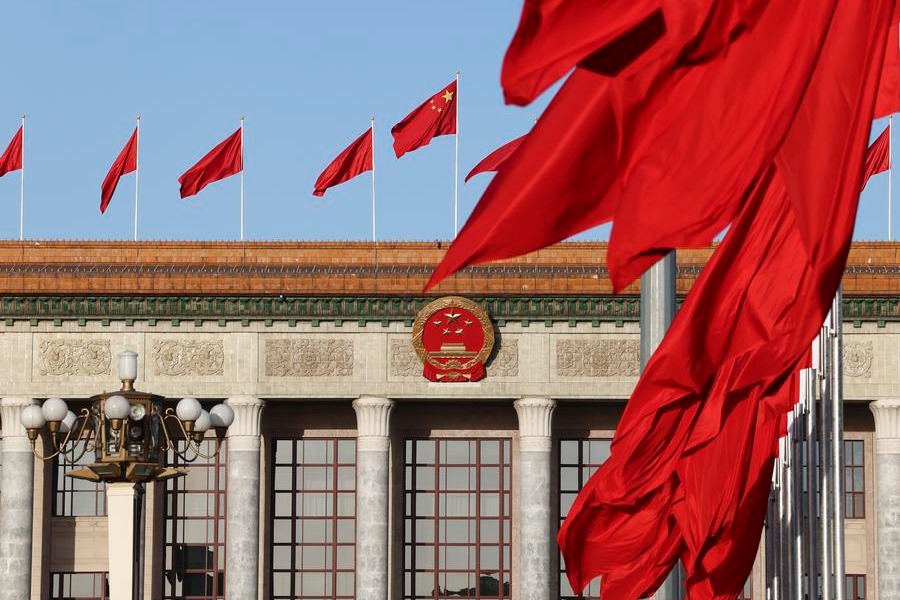Lessons learned unlikely to resolve EU divisions


There are early signs that Europe's COVID-19 crisis may have reached its peak after the death toll passed 100,000.
With 1 million confirmed cases across the continent, two of the countries affected early on, Spain and Italy, have recorded their lowest deaths tolls in a month. There were also hopeful signs in the UK and France, two of the worst affected countries.
However, social distancing measures remain in place and, even where they are being eased, authorities are unwilling to put a date on a return to normality.
In the UK, where the government quashed expectations that schools might soon reopen, there was nevertheless media speculation of a division among ministers between doves and hawks: those who prioritize the fight against the disease and those concerned about the impact on the economy.
For the moment, the European consensus appears to be that lifting restrictions too early would possibly cause a resurgence of the disease. Inevitably, however, there has been the start of a debate about what happens the day after the virus is defeated.
Europe is a continent of advanced welfare states. To a greater or lesser extent, countries guarantee free or subsidised healthcare and education to their citizens, as well as other benefits such as social housing and unemployment pay.
This cradle-to-grave system of guarantees has been under pressure for a decade since the financial crisis of 2008. Public money was used to bail out failing banks, while ordinary people were forced to tighten their belts. Or at least that is a perception that has given rise to European populist movements, such as France's gilets jaunes.
For the moment, the focus is on solidarity: countries pulling together to protect themselves against the unseen menace of disease. But will that solidarity survive if, post-crisis, governments return to policies of austerity in which the less-well off majority suffer the most.
For the time being, European governments have stepped in, individually and collectively, to stabilize their economies by pumping cash into the financial system. The UK and France are among those governments that are subsidizing the wages of those who cannot currently go to work.
In these exceptional circumstances, austerity has been almost forgotten as the state assumes a more central role. Such measures naturally raise the question of who is going to pay for it all whenever the crisis is over.
If the burden ends up falling on ordinary men and women, it raises the prospect of popular and political revolts against the status quo.
In the UK, for example, where the state-run National Health Service enjoys near-religious status, there is a realisation that the most important people in society are not the cosetted bankers and hedge fund managers but rather the underpaid army of nurses, care workers, postmen and refuse collectors.
Will the public accept that this tribe of pandemic heroes will continue to bear the biggest burden?
In France, almost a year and a half of gilets jaunes demonstrations that paralyzed parts of the country, protests have been stifled by the lockdown. But there is little doubt they will revive if the government fails to change tack in the face of their populist demands.
There has already been a backlash in the south of France over reports that the super-rich residents of an exclusive neighborhood of Saint Tropez were receiving novel coronavirus tesing that is denied to the rest of the community.
For the time being, the crisis has tended to reinforce the popularity of those in power, as long as they are seen as being guided by science and a spirit of burden-sharing while their populations confront the inevitable disruption to their lives.
Polls show people have rallied round their leaders, whether it is France's previously unpopular President Emmanuel Macron, Germany's confidence-inspiring Angela Merkel, whose influence had been in decline, or the UK's controversial Boris Johnson, who has won added sympathy for having suffered the disease himself.
But will this public solidarity with political leaders survive the outcome of the crisis? That might depend on the post-mortems to establish how they acted in the face of the threat: in retrospect, did they take the appropriate actions at the appropriate times to address the pandemic?
For most Europeans, it seems unlikely, once the immediate threat recedes, that they will fundamentally switch their political outlooks. The lessons learned are unlikely to resolve the divisions between European Union skeptics and enthusiasts, or between those who embrace greater state spending or those who oppose it.
In the absence of a vaccine or effective treatment, the effects of the pandemic could drag on for years. People in Europe may be pulling together for now, but as time drags on, the old divisions seem certain to resurface as the continent returns to politics as normal.
Harvey Morris is a senior media consultant for China Daily UK
































